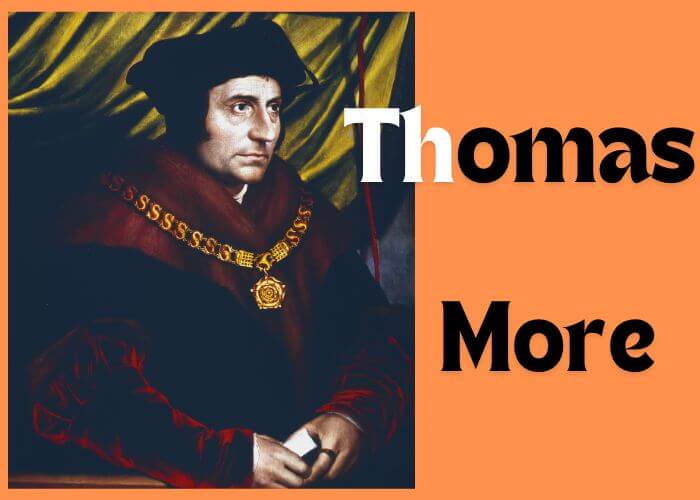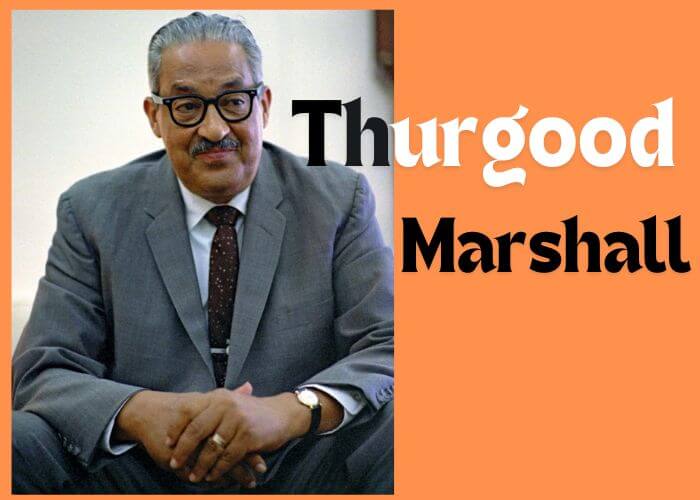Lawyer or attorneys practice in a variety of fields, including family law, commercial law, personal injury, criminal defense, and others.

Many people wonder, “Who is the best lawyer of all time?” This is not an easy question to answer given the countless lawyers and attorneys worldwide who have done remarkable work for their countries and communities. These legal professionals have earned immense respect for their contributions. While pinpointing the single best lawyer is challenging, we can certainly highlight a few of the most famous and influential lawyers throughout history.
Throughout history, the legal profession has been graced by individuals whose brilliance, integrity, and influence have left indelible marks on society. Lawyers often stand as guardians of justice champions of the oppressed, and architects of legal frameworks that shape nations.
Determining the best lawyer of all time is a formidable challenge given the myriad of exceptional individuals who have contributed to the legal field in diverse ways. This article aims to explore various candidates for this title, examining their lives, achievements, and lasting impacts.
Criteria for “Best Lawyer”
To identify the best lawyer of all time, we need clear criteria. The following factors will guide our evaluation:
- Legal Skill: Proficiency in understanding and applying the law.
- Influence: The ability to shape legal thought, policy, and society.
- Landmark Cases: Involvement in significant cases that have had a profound impact.
- Contribution to Law: Contributions to legal theory, practice, and education.
- Ethics: Adherence to moral principles and integrity.
- Public Service: Commitment to serving the community and advocating for justice.
These criteria are crucial because they encompass the qualities that make a lawyer truly exceptional, ensuring that our evaluation is comprehensive and fair.
Historical Lawyers
Cicero

Background: Marcus Tullius Cicero, born in 106 BCE, was a Roman statesman, orator, and lawyer. He is often regarded as one of Rome’s greatest speakers and prose stylists.
Contributions: Cicero’s legal career was marked by his defense in high-profile cases and his rhetorical prowess. He defended numerous clients against charges of political corruption and other crimes. His speeches, such as those against Catiline, are masterpieces of oratory and legal argumentation.
Legacy: Cicero’s influence extends beyond his legal victories. He played a pivotal role in the development of Roman law and legal principles. His writings on philosophy, politics, and law influenced later thinkers and helped shape Western legal tradition.
Thomas More

Background: Thomas More, born in 1478, was an English lawyer, social philosopher, and statesman. He served as Lord Chancellor of England under King Henry VIII.
Contributions: More is best known for his book “Utopia,” which presented a vision of an ideal society. As a lawyer, he was noted for his integrity and dedication to justice. More refused to endorse Henry VIII’s separation from the Catholic Church, ultimately leading to his execution for treason.
Legacy: More’s steadfastness in the face of moral and political pressure made him a symbol of integrity and ethical conduct. His ideas on law and society continue to influence legal and political thought.
Abraham Lincoln

Background: Abraham Lincoln, born in 1809, is best known as the 16th President of the United States. However, before his presidency, he was a highly respected lawyer in Illinois.
Contributions: Lincoln’s legal career included a wide range of cases, from defending accused criminals to representing railroads in complex litigation. His logical, clear, and honest approach to law earned him a reputation for fairness and competence.
Legacy: Lincoln’s legal practice laid the foundation for his political career. His commitment to justice and equality was evident in his leadership during the Civil War and his efforts to abolish slavery. Lincoln’s legacy as a lawyer is intertwined with his enduring impact on American history.
Modern Lawyers
Thurgood Marshall

Background: Thurgood Marshall, born in 1908, was an American lawyer and civil rights activist. He became the first African American Supreme Court Justice in 1967.
Contributions: Marshall’s most notable achievement was his victory in the landmark case Brown v. Board of Education, which ended racial segregation in public schools. Throughout his career, he fought tirelessly for civil rights, representing clients in numerous cases that challenged discriminatory laws.
Legacy: Marshall’s work transformed American society by advancing civil rights and equality. His legal strategies and successes laid the groundwork for future civil rights advancements. As a Supreme Court Justice, he continued to advocate for justice and equality.
Ruth Bader Ginsburg

Background: Ruth Bader Ginsburg, born in 1933, was an American lawyer and jurist who served on the Supreme Court from 1993 until her death in 2020.
Contributions: Ginsburg was a trailblazer for gender equality, arguing several landmark cases before the Supreme Court that challenged gender discrimination. As a Justice, she authored influential opinions and dissents that shaped American law.
Legacy: Ginsburg’s work on gender equality and her powerful legal writings have left a lasting impact on American jurisprudence. She inspired generations of lawyers and activists to continue the fight for equal rights.
Nelson Mandela
Background: Nelson Mandela, born in 1918, was a South African lawyer, anti-apartheid revolutionary, and statesman. He became South Africa’s first black president in 1994.
Contributions: Mandela used his legal training to fight against apartheid, representing political prisoners and advocating for justice. His imprisonment for 27 years highlighted his commitment to the cause of freedom and equality.
Legacy: Mandela’s legal and political efforts dismantled apartheid and established a democratic South Africa. His legacy as a lawyer is inseparable from his broader contributions to human rights and social justice.
Influential Lawyers in Fiction
Atticus Finch

Background: Atticus Finch is a fictional character from Harper Lee’s novel “To Kill a Mockingbird.” He is a lawyer in the fictional town of Maycomb, Alabama.
Contributions: Atticus Finch is best known for his defense of Tom Robinson, a black man falsely accused of raping a white woman. His commitment to justice, moral integrity, and courage in the face of prejudice make him an enduring symbol of the ideal lawyer.
Legacy: Although fictional, Atticus Finch has inspired countless readers and real-life lawyers. His character represents the best qualities of the legal profession and the pursuit of justice.
Read More – who is the best lawyer in Arizona (2024)
Comparative Analysis
Comparing the lawyers discussed above reveals a common thread: their dedication to justice, integrity, and the profound impact they had on society. Cicero and Thomas More laid early foundations for legal and ethical standards. Abraham Lincoln’s legal practice was instrumental in his journey to abolish slavery and preserve the Union.
Thurgood Marshall and Ruth Bader Ginsburg championed civil rights and gender equality, transforming American law and society. Nelson Mandela’s legal and political efforts ended apartheid and established a democratic South Africa. Even Atticus Finch, though fictional, continues to inspire ideals of justice and moral courage.
Legal Skill
- Cicero: Renowned for his oratory and legal reasoning.
- More: Known for his intellectual rigor and ethical stance.
- Lincoln: Celebrated for his logical and honest approach.
- Marshall: Masterful in civil rights litigation.
- Ginsburg: Expert in gender equality and constitutional law.
- Mandela: Strategic in his legal activism against apartheid.
- Finch: Idealized for his defense skills and moral integrity.
Influence
- Cicero: Influenced Western legal tradition.
- More: Impacted legal and political thought.
- Lincoln: Shaped American history and justice.
- Marshall: Advanced civil rights.
- Ginsburg: Promoted gender equality.
- Mandela: Transformed South African society.
- Finch: Inspired public perception of lawyers.
Landmark Cases
- Cicero: Numerous high-profile Roman cases.
- More: Legal actions aligned with his moral beliefs.
- Lincoln: Various influential cases in Illinois.
- Marshall: Brown v. Board of Education and other civil rights cases.
- Ginsburg: Several gender equality cases.
- Mandela: Defended political prisoners and fought apartheid laws.
- Finch: Defense of Tom Robinson (fictional).
Contribution to Law
- Cicero: Legal writings and speeches.
- More: “Utopia” and ethical principles.
- Lincoln: Legal and political reforms.
- Marshall: Civil rights advancements.
- Ginsburg: Gender equality jurisprudence.
- Mandela: Human rights and democracy.
- Finch: Literary contribution to legal ideals.
Ethics
- Cicero: Commitment to Roman justice.
- More: Martyrdom for his beliefs.
- Lincoln: Integrity in law and politics.
- Marshall: Dedication to equality.
- Ginsburg: Consistent advocacy for justice.
- Mandela: Moral resilience against oppression.
- Finch: Embodiment of ethical lawyering.
Public Service
- Cicero: Political and legal service in Rome.
- More: Public service under King Henry VIII.
- Lincoln: Presidency and abolition of slavery.
- Marshall: Legal activism and Supreme Court service.
- Ginsburg: Judicial service and public advocacy.
- Mandela: Leadership in South Africa.
- Finch: Fictional, but a symbol of public service.
Conclusion
Given the exceptional individuals who have worked in the legal profession, it is not an easy thing to do to come up with a list of all-time best lawyers. Cicero, Thomas More, Abraham Lincoln, Thurgood Marshall, Ruth Bader Ginsburg, Nelson Mandela, Atticus Finch- fictitious as he may be, showcase rare legal skills, impacts, groundbreaking records, as well as strong morals.
Final Thought – who is the best lawyer of all time
as impossible as it is to christen one particular lawyer with the title of the “best,” one needs not have lived a century ago and served in different settings simply because every one of them did something that changed how people view an exemplary attorney. The dedication they showed continues propelling young and even those practicing law today toward fairness.









